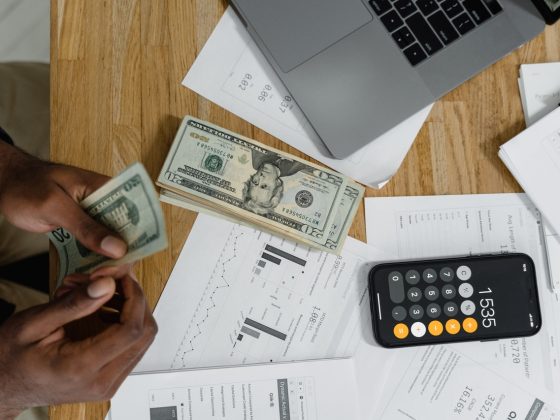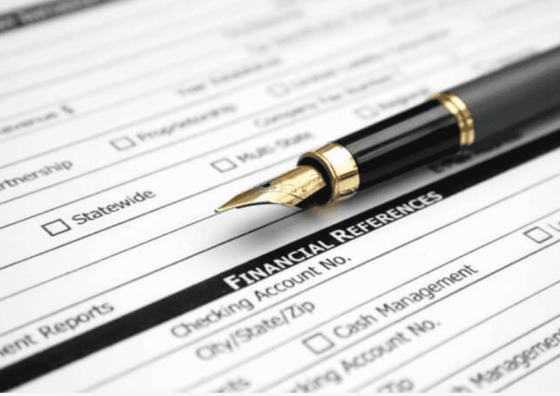Knowing how to pay off student loans efficiently could shave years off your repayment period. In turn, that means you can start living your best life untethered by student debt. But you should know right from the start that there’s no magic eraser that’s going to wipe away your loans. You’ll have to put in some effort, but it’s possible to pay them off and do so faster than you might expect.
This brief guide will go over some of the best ways we know to manage debt in general and how to pay off student loans fast.
The Basics of Responsible Borrowing
Some things will work to help you pay down loans more deliberately, no matter what kind of loan it is. These healthy financial practices will probably take some time to settle in, but if you’re persistent, they will become second-nature.
1. Know Your Loan
Before you even apply for a loan, you should be aware of what you’re getting into. Ensure you understand the terms of the loan, interest rates, prepayment penalties, and other minutiae.
Furthermore, always know how much you owe. Many people make the mistake of ignoring the specific sum out of anxiety, but that can lead to trouble down the road. If you don’t know how much you owe, it’s challenging to detect any problems with your payments.
2. The Best Way To Pay Off Student Loans (and Other Loans) Is With a Plan
The right repayment plan will get you where you want to be sooner with most loans.
You may be eligible to negotiate a repayment plan with your loan originator or servicer. In short, that means you can make modifications to your repayment schedule if you qualify based on income, place of employment, or other factors.
Student loans usually have a little more flexibility than other kinds of loans when it comes to repayment plans. If you’re trying to figure out how to pay off federal student loans, you can find a lot of practical advice on the federal student aid website.
3. The Higher the Interest, the Higher the Priority
If it’s possible to defer payments on some of your student loans, your best bet is to postpone the ones with lower interest rates (or make minimum payments) and focus on the ones with higher rates.
This is especially important if you’re learning how to pay off multiple student loans. Loans with higher rates are much more onerous, especially if you put them off since they cost more over time.
Another strategy in the same ballpark is to consolidate your loans if interest rates vary widely between them. Often, a single middle-of-the-road rate is better than some low and extremely high ones.
4. How to Pay Off Student Loans Faster by Spending Less
This is the most obvious and, sometimes, the most overlooked way to manage loan repayment. Dial back your spending, and create a budget that lets you contribute more to your loan repayments.
It comes down to a choice between coasting on minimal loan payments for a long time or tightening your belt and paying it off faster. Things like living with a roommate, taking on a side gig, or even opting for public transport instead of driving can make a significant impact on your loan term. Remember that you’re investing in your future, so it’s worth a little sacrifice for long term gain.
Since most student loans don’t have prepayment penalties, tucking money away for a few years and paying off student loans in full is a viable strategy while making minimum payments in the meantime.
5. Create a Support Network
Paying off debt is a slog that will get more difficult the longer you have to do it. Having people around you to cheer you on and support you when it gets rough makes a big difference.
The support can be financial, but it doesn’t need to be. What’s more valuable is having people who can help you stay on track and maintain a healthy mindset throughout your journey.
As a young adult right out of college, it can be tough to manage your expectations. There’s an implicit promise many people internalize about getting their dream job and living their dream life once they enter the workforce. When they’re confronted with the need to develop creative ways to pay off student loans and that promise doesn’t materialize, it can be a bitter pill to swallow.
6. Allocate Half of Every Windfall Towards Loans
Sooner or later, you’ll end up receiving some money that you didn’t expect. It could be from a raise or bonus from work, an inheritance, or many other reasons. It’s a good rule of thumb always to use half of that money to pay down debt.
If you’re struggling to figure out how to pay off college debt, start investing your good fortune into your debt, and you’ll see a significant improvement in how quickly you’re able to pay them off.
8 Practical Tips to Pay Off Student Loans
We just went over some general advice to help you pay off debts in a more organized manner. But now, we’re going to focus on real and actionable advice that applies to student loans in specific.
Fortunately, student loans enjoy a few benefits that other types of loans don’t, and if you know how to take advantage of those benefits, you’ll have an easier time paying them off.
How to Pay Off Your Student Loans By Refinancing
For starters, you can refinance your student loan. Admittedly, you can do this with most types of loans if the originator gives you the option. But refinancing student loans can be especially beneficial because it’s likely you had a short credit history or poor credit when you got it. Refinancing can modify how long it takes to pay off student loans, interest rates, or both.
Here are a few things you can do to give yourself the best odds of getting a favorable refinance:
- Build up your credit with professional help — Employing a credit repair company’s services can be an excellent way to remove inconsistencies and mistakes from your credit report.
- Use a cosigner — Some loans allow joint applications, which means the originator takes both applicants’ credit into account. A cosigner with good credit, such as a family member, can significantly improve your odds of getting favorable loan terms.
- Revise your own credit report — You can pay a credit repair company to go through your credit report and look for errors. But you can also do this yourself and save the service fee provided you are skilled enough.
It’s also important to note that if you refinance a federal loan with a private loan originator, you’ll lose all the benefits that go along with it.
How to Pay Off Interest on Student Loans with Automatic Payments
Another strategy to give yourself a leg up in the student loan game is to enable autopay. Most private lenders offer an autopay program in exchange for a reduction in your interest rate.
Essentially, you allow the loan originator to draw payments from a designated checking or college savings account automatically. Federal loan services also have autopay options, and you can expect a 0.25% reduction in your interest rate if you enroll.
For reference, someone who owes $50,000 in debt with a 5% interest rate over 10 years will pay $13,639.31 in interest. In contrast, a 4.75% interest rate for the same individual will result in a $12,908.65 total interest, saving $731 over the loan’s life.
How To Pay Off Your Student Loans Faster by Making Payments Every Two Weeks
This seems absurd at first glance, and, to be fair, it’s just a way to trick yourself into paying off loans faster. All you have to do is divide your monthly payment into two and pay that amount every two weeks—it’s that simple.
What does that accomplish?
Well, you’ll make one extra monthly payment each year than you otherwise would. Instead of 12 full payments, you’ll make 26 half-payments since a year has 52 weeks but only 12 months.
This strategy also works for many other types of loans and people often find it easier to manage the smaller payments as well.
How to Pay Student Loans Faster By Making Extra Payments
The previous trick is essentially a clever way to make extra payments on your student loan. But you can also make additional payments without any psychological devices if you’re disciplined.
First, most loan servicers default to applying your extra payments toward the next due date. That only pushes the due date forward in time but keeps the length of the loan the same. When you make extra payments, make sure you notify the loan servicer you want to keep the same due date and apply the amount to your loan balance.
Second, again by default, loan originators pay themselves first and then pay down your principal. In other words, your payments pay down interest, and when that’s done, they pay down what you owe. Instead, ask loan servicers to apply those payments to your principal directly when you make extra payments.
How to Pay Off College Debt Faster by Eliminating Interest Before It Capitalizes
Generally, you don’t need to make payments toward your student loans while you’re in school. However, the loan does generate interest while you’re in school unless you have a federally subsidized loan.
After the postponement period, you have to start paying off the loan. And when that happens, in many cases, the interest the loan generated so far capitalizes (becomes principal). That effectively means you’ll end up paying interest on the interest, and if you’re trying to work out how to pay off student loans early, it can throw a massive wrench in the works.
Instead of letting that happen, pay off the accrued interest before the capitalization happens to reduce your ultimate balance and avoid double interest. You can do this by making a lump sum as your postponement period is ending or by paying the interest as it accrues while you’re in school.
How to Pay Off Student Loans by Modeling the Success of Others
As with everything in life, drawing inspiration from others who achieved what you’re trying to do is a solid strategy.
There are many resources online, such as forums, where you can see the steps that other people took in similar circumstances. Look through these resources to find out how long does it take to pay off student loans for others and how they did it.
You’ll often learn things that you wouldn’t have thought of yourself, and the information is grounded in reality rather than abstract advice.
This is especially true for loans since there are so many little tricks and tips you can use that you won’t find listed anywhere except in case studies.
Student Loan Forgiveness
If you have a federal student loan, you may be eligible to have some or all of the loan forgiven. This forgiveness would effectively wipe your slate clean, but keep in mind that you’ll owe taxes on the forgiven amount.
Public Service Loan Forgiveness — Public servants and those working in qualifying non-profit positions can receive loan forgiveness under the PSLF program.
Teacher Loan Forgiveness — Full-time teachers with a minimum of five consecutive academic years in a low-income school may qualify for up to $17,500 of forgiveness on direct loans or Federal Family Education Loan Program loans.
In addition to loan forgiveness, there are many circumstances under which federal loans can be discharged entirely. These include death, permanent disability, your college closing, etc.
How to Pay Off Student Loans Quickly with Workplace Benefits
Many companies have student loan assistance programs for their employees that you may qualify for after working there long enough. If you’re already employed, look into such programs with your HR manager.
Some companies even have student loan repayment options as an employee benefit.
If you’re looking for work, it may be worth considering student loan assistance as a valuable criterion to pick a workplace.
FAQs
How can I pay off my student loans faster?
The best strategy is to use a multi-pronged approach. You can start with making changes to your lifestyle to live within your means and apply any extra income to pay down your loans.
If you have decent credit, you can try to refinance your loan for one with a shorter term. You can also look for grants to pay off student loans. These grants are usually tied to your location or chosen field. Start by inquiring with your state government and organizations connected to the industry you studied to work in.
How can I pay off $50,000 in student loans?
If you have a private loan, the first thing you can do is look for refinancing options at a lower rate.
If you have a federal loan, you may be eligible for loan forgiveness based on several criteria. And even if you’re not, you can explore income-based repayment plans or many other advantageous repayment schemes.
The strategy to pay off your student loans won’t change much whether you’re in debt for $50,000 or $500,000.
How quickly should you pay off your student loans?
As fast as it is conveniently possible. Try to refinance your loan, make early payments, pay off capitalized interest, and engage in best borrowing practices whenever possible. But don’t lock yourself into an unrealistic repayment plan that you won’t be able to handle in the long run.
Bear in mind there’s no hard and fast rule about how fast you need to repay student loans, i.e. how many months or years you should dedicate to it. You can end up doing more harm than good if you rush to pay them off at the expense of your financial wellbeing.
How long does it take to pay off student loans on average?
Around 20 years is student loans’ average repayment period, judging by the most recent information gathered by third-party researchers indicates that is. Several independent surveys reached similar numbers, including one from the One Wisconsin Institute that looked at 61,000 borrowers.
How to pay off student loans while in school?
Most people choose to take advantage of the postponement period for loan payments while they’re in school. However, you’re well-advised to at least pay down loan interest on your student loan while you’re in school and before it capitalizes.
If you want to start making principal payments, you can do that by notifying your loan servicer. If you find that you can manage the expenses, nothing stops you from paying it early in most cases.
How to pay off student loans in 5 years?
To give yourself the best chance at success, here’s what you can do:
- Use a loan prepayment calculator to see how much you’d have to pay to make your deadline.
- Choose a repayment plan you can manage.
- Build a realistic budget and stick to it.
In addition to that, allocate part of any unexpected income towards paying down your principal and search for any applicable grants or assistance programs.
Conclusion
When you’re facing a decade or more of student loan payments, it’s easy to get discouraged. But that’s precisely what you need to avoid and the worst thing you can do for your loan repayment.
Learning how to pay off student loans is a different journey for everyone, but as long as you get the basics right, there’s no reason to despair.
Refinancing your student loan is one of the key things you can do to start. Many private lenders, such as Earnest, Ascent, and SoFi, offer great refinancing options, even if you have less-than-ideal credit.






